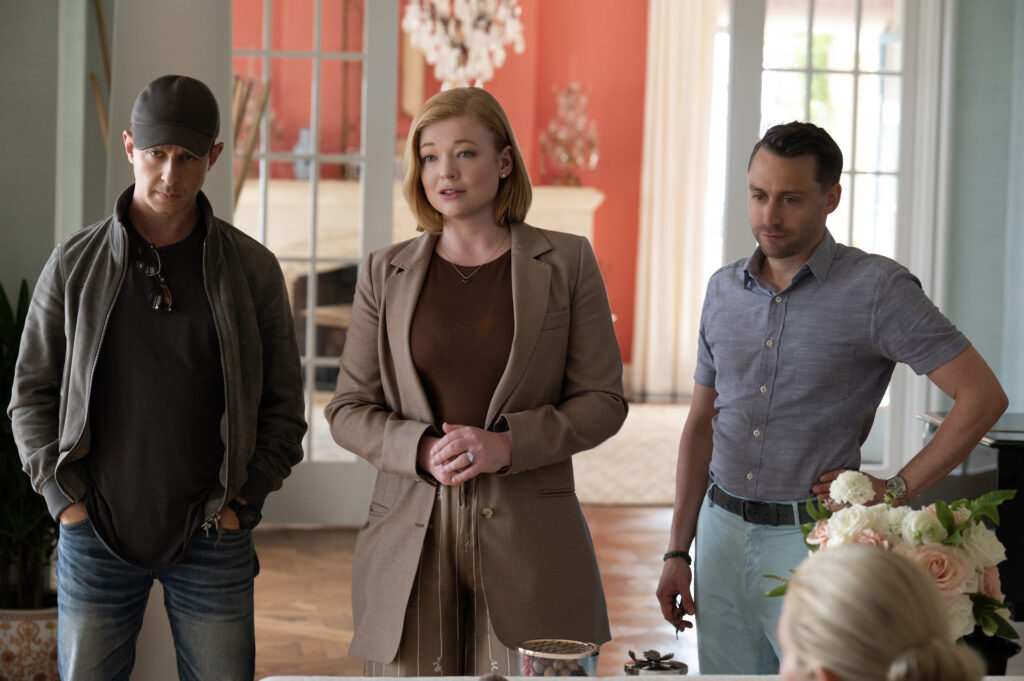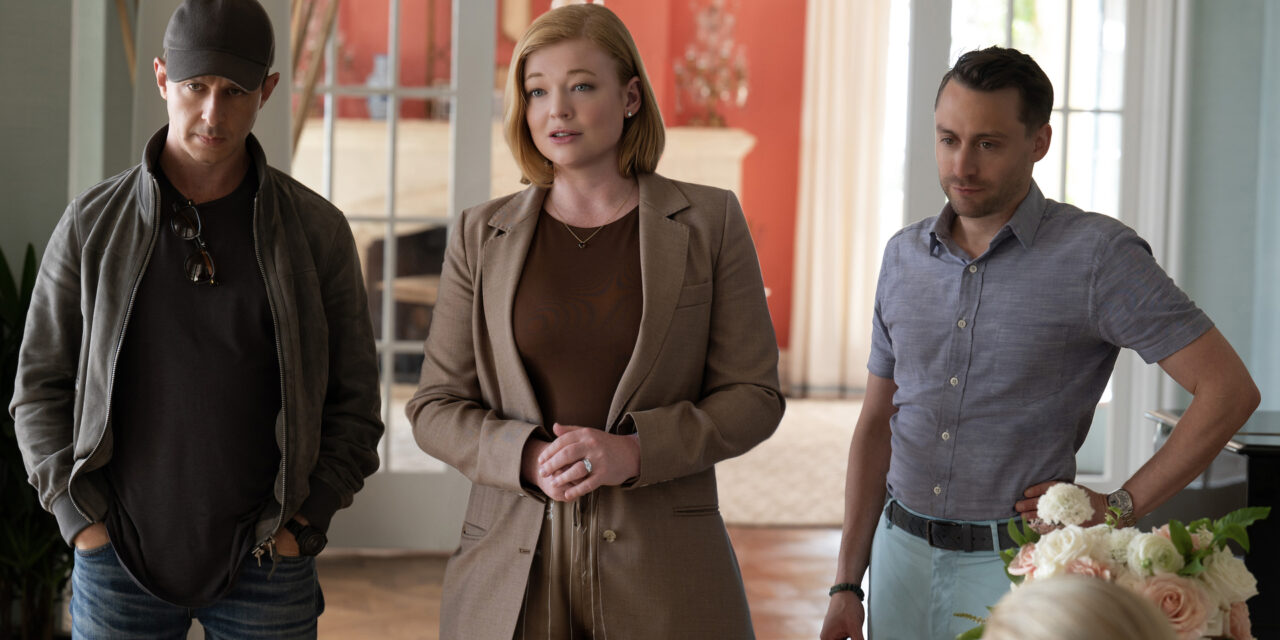This review contains spoilers.
After months of anticipation, the first episode of the fourth and final season of “Succession” aired on HBO Max on March 26. The previous three seasons followed Logan Roy (Brian Cox) and his children Kendall (Jeremy Strong), Roman (Kieran Culkin) and Shiv (Sarah Snook) as they fought for control over Waystar Royco, a multibillion-dollar global media and entertainment conglomerate. The show explores vast ideas such as politics, culture, capitalism and the kind of behavior it promotes, in addition to themes of familial abuse and addiction. “Succession” is a story about the evils of corporate America as much as it is a story about troubled children seeking validation from their emotionally manipulative father.

Courtesy of HBO
The third season ended with the three siblings teaming up to oust their father from the company once and for all, only for them to learn, in a moment of brutal confrontation, that he already knew of their plan and had kicked them out of the company.
This new season not only succeeds in catching the audience up but also uses its premiere episode to further the characters’ respective storylines. Logan is about to secure a deal with Pierce Global Media (PGM), an acquisition that would make Waystar an even more fearsome foe. Meanwhile, the Roy siblings clumsily work together to found a new media conglomerate called “The Hundred.” Through their use of business jargon and vague descriptors, it becomes clear that none of them have a true vision of what the company is. Halfway through the episode, the siblings decide to change their course of action and instead acquire PGM for themselves, citing The Hundred’s lack of concrete goals as the reason.
In addition to the Roy family, every major character from the previous three seasons shows up at some point in the episode, even if only briefly. Logan’s retinue, including Gerri (J. Smith-Cameron), Frank (Peter Friedman) and Kerry (Zoe Winters), all appear in the episode, frazzled and overworked as always. Greg (Nicholas Braun) and Tom (Matthew Macfadyen) return as the awkward comedic duo. The reappearance of major characters is yet another brilliant feat of the writing, reorienting viewers and assuring them that no loose threads or character arcs have been forgotten.
The main thrust of season four’s plot is the war between the Roy siblings and their father. As such, most of the season four premiere focused on one microcosm of that conflict, showing the push and pull between the two sides as they struggled over PGM. The latter half of the episode zooms in on the nitty gritty of a business deal —, civil conflict on both sides, frustration, squabbling and the hesitant phone calls and half-truths as both sides stack billions upon billions of dollars in an absurd bidding war. The conflict is nail-bitingly intense and so deliciously chaotic.
The premiere of the fourth season is striking because it strongly echoes season one, yet distantly. Both seasons open with Logan’s birthday party, and both seasons feature the siblings unanimous discontentment over a decision their father has made, yet the circumstances are so different. Just as Logan says to Colin (Scott Nicholson) in a quiet moment at dinner, “Nothing is the same as it was.”
The smart, engaging writing is brought to life by the actors, who bring depth to their characters. Each character contains multitudes and the different faces they put on for different people reveal their underlying desires.
For example, when Shiv is with her brothers, she is snarky in a light-hearted way as she playfully banters with Roman. When it comes to business, she speaks with reserve, holding back her doubts and distrust. While Shiv may be fun yet duplicitous with her brothers, she acts overly aggressive with soon-to-be-ex-husband Tom, speaking in clipped sentences and twisting everything he says into an argument.
Tom, another incredible display of multiplicity within one character, matches Shiv’s energy, putting on a veneer of cold, distant reserve while his frustration simmers below the surface. Though Tom is cool and curt with Shiv, he completely changes shape in front of Logan. He stutters and stumbles over his words, growing more flustered as Logan grows more disinterested. Tom’s behavior, like Shiv and by extension every character, is influenced by those around him. These subtle shifts in performance make the characters feel dynamic and real.
The range of the actors allows “Succession” to be as thrilling as it is gut-wrenching. The show thrills viewers with the bidding war, yet delivers real emotional punches. In a scene toward the end of the episode, Shiv and Tom speak civilly for the first time in the episode, reflecting on the end of their marriage. In a moment of genuine intimacy that communicates more than all the unspoken words ever could, they hold hands as they lie in bed. After watching these two characters argue with one another while struggling in their other social interactions, this moment of uneasy peace means everything.
“Succession” season four displays all the strengths of its earlier seasons, most notable among them being incisive writing and layered, emotionally-charged performances. The opening episode has moments of chaos and of quietude; it both brings the viewers to the edge of their seats and to the brink of tears. I have confidence that the rest of the season will live up to the quality of its carefully-crafted and poignant premiere.
Alexandra Kauffman (26C) is an English & Creative Writing major from Phoenix, Arizona. At the Wheel, she is an Emory Life section editor and Arts & Entertainment campus desk. Outside of the wheel, she is a member of Alloy Literary Magazine. She is also a science fiction enthusiast and enjoyer of the bizarre.







